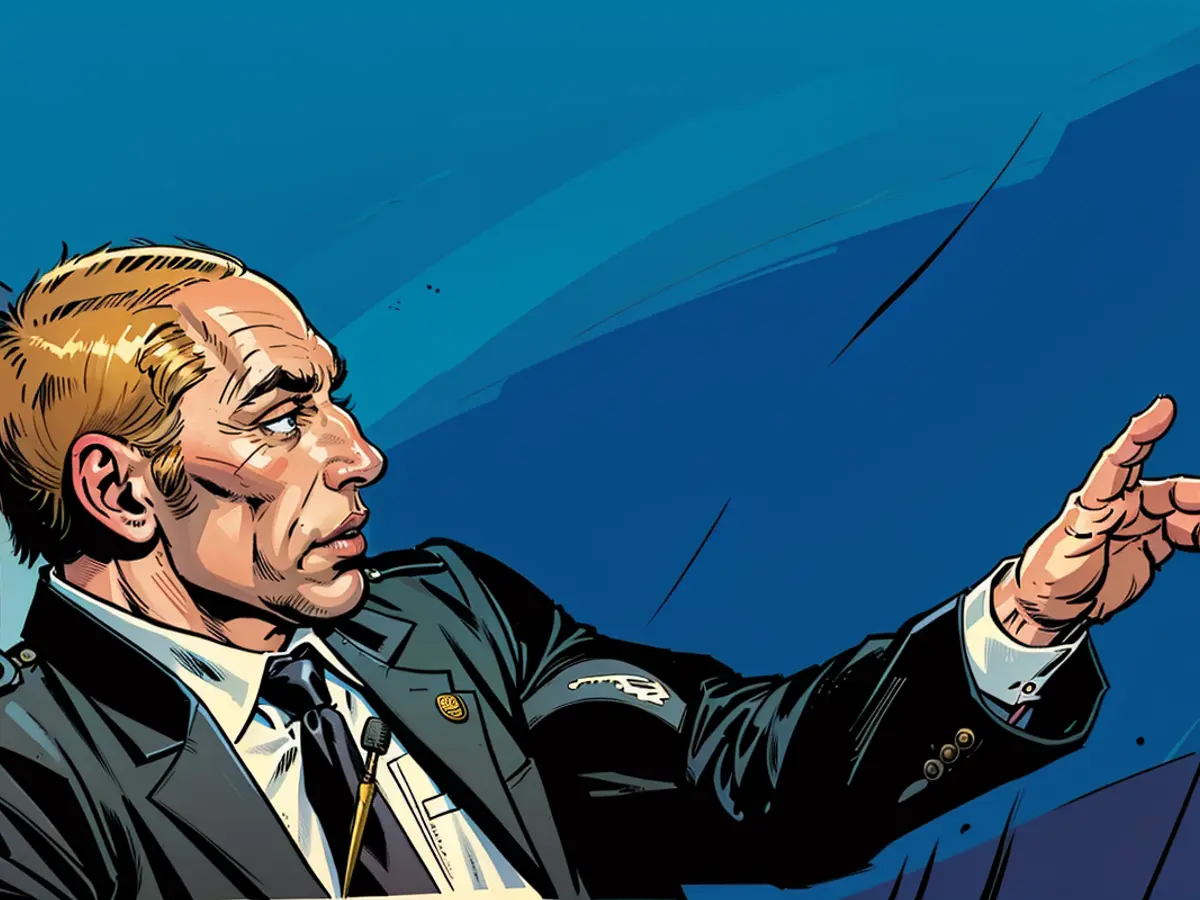Putin's proposal requires utmost care.
It feels like a sense of anticipation. President Putin of Russia apparently offers Ukraine a potential solution: Ukraine could relinquish certain areas of its land and decline NATO membership, in exchange, he promises a ceasefire and negotiations for peace. However, Ukraine is unable to consent to this.
Indeed, this news makes you perk up, pay attention, even jump: Has Russia's President Putin truly brought peace within reach for Ukraine? He announced, "If Ukraine renounces NATO membership and surrenders the four eastern regions to Russia, there could be a ceasefire. And then peace talks." This may sound promising, but is it actually attainable?
It would indeed be favorable if it were true. But this is the exact juncture that was always warned about. Such an appealing proposition seems enticing, yet it's not feasible for Ukraine. There are multiple factors at play. For starters: Trust. Putin is a known liar, as proven countless times. "We won't attack Ukraine," "We won't cease gas supplies to Germany," "Zelenskyy is a Nazi," and even today, "We never desired to capture Kyiv." Lies, deception, and bloodshed are hallmarks of this individual.
Then, there's the strategic level. His demands align with Russia's official war objectives. They want to capture Donetsk, Luhansk, Kherson, and Zaporizhzhia, and keep Ukraine out of NATO. Anyone making such maximalist demands during negotiations probably doesn't require any real negotiations. Putin has already accomplished his goal. As security expert Carlo Masala states on X, "One calls such a peace a dictated peace." He's absolutely right.
Putin wishes to annex Ukraine to Russia
At this juncture, one might assert: Ukraine must accept reality and collaborate. However, does such an offer actually promote peace? Let's envision Zelenskyy complying with the offer and Putin adhering to their word. The Ukrainian forces retreat, and the Russians cease firing. Negotiations commence.
How long might these talks last? Three months? Six months? A year? Russia might use this interim period to stockpile more weapons, enlist more soldiers, and ultimately, fail the talks. This might lead to a renewed attack with augmented force. Is this potential scenario dismissible? Putin himself constantly claims it's not only about current events, but potential threats. That's his justification for his continuous fear of a NATO assault.
We find ourselves again at the trust issue. To even consider such an offer, a considerable measure of faith is needed. But there's no more trust remaining. At the onset of the war, Zelenskyy was still willing to consider forsaking NATO membership. However, following Bucha and Russia's daily bombardment on civilian populations, he can no longer accept that. Anyone who listens to Zelenskyy knows: Putin aims to annex Ukraine to Russia. He views it as part of Russia. He will not abandon his goal. His offer, therefore, primarily appears as an attempt to secure more time.
Can this offer still have a bearing? Could it be that Putin is only now recognizing the constraints of his campaign? Is it a sign of weakness? Following the meager results that Russia has accomplished so far, Russia is in a much worse position compared to two years ago. Germany, Poland, and other countries are significantly boosting their military capabilities. Sweden and Finland have joined NATO. Russia is partnered with China, relying completely on Chinese arms. Is Putin revealing signs of wisdom? Is it possible that he could agree to talks without preconditions? It's improbable.
It's likely that this offer is not intended for Kyiv, but instead for Germany, the US, and other Western nations. Sahra Wagenknecht has gained fresh ammunition. For quite some time, she claimed negotiations with Putin were possible. This offer will only amplify her calls for surrender. The AfD may also utilize this, as might portions of the SPD. The same applies to the United States. Trump might support this and construct a campaign around it. Evidently, he still believes Putin's claims. Consequently, Putin could obtain numerous spokespersons worldwide who may sway public opinion in his favor.
Nevertheless, it remains unaltered: The only person who can bring peace to Ukraine is Putin himself. If he genuinely seeks peace, he could issue the order. Putin doesn't, though. Instead, he demands a surrender. Even so, he would have won, and it would just be a matter of time before the next escalation.
Read also:
- Despite the proposal from Russia's President Vladimir Putin for a ceasefire and peace talks if Ukraine renounces NATO membership and surrenders certain territories, President Volodymyr Zelenskyy of Ukraine has refused to consider it due to a lack of trust in Putin's promises and Russia's strategic objectives.
- The 'Attack on Ukraine' continues, and Russia's intention to annex Ukraine is clear, making it challenging for Ukraine to trust any peace offer from Putin, especially when his past actions have been marked by deception.
- The international community, including NATO, is closely watching the situation in Ukraine, and any peace offer from Putin will likely be met with skepticism, given his history of broken promises and aggression towards Ukraine, potentially jeopardizing any chance of a peaceful resolution.








